
Source: Meteorologist Brittney Merlot
Air Quality Hits Very Unhealthy Levels
MILWAUKEE, Wis. (WAUK) – Wisconsin breathed in the world’s worst air quality levels on Thursday as a cloud of wildfire smoke covered clear skies.
Just as the Air Quality Alert was about to expire at noon on Thursday across the state, the opposite took place and AQI levels spiked to 200+ PM2.5 AQI in many spots.
The smoke started to build thicker in the U.P. early in the morning hours and then filtered down the Lake Michigan shoreline towards Green Bay by the late morning. Areas there including Chilton, Appleton and Door County quickly rose to ~225 AQI.
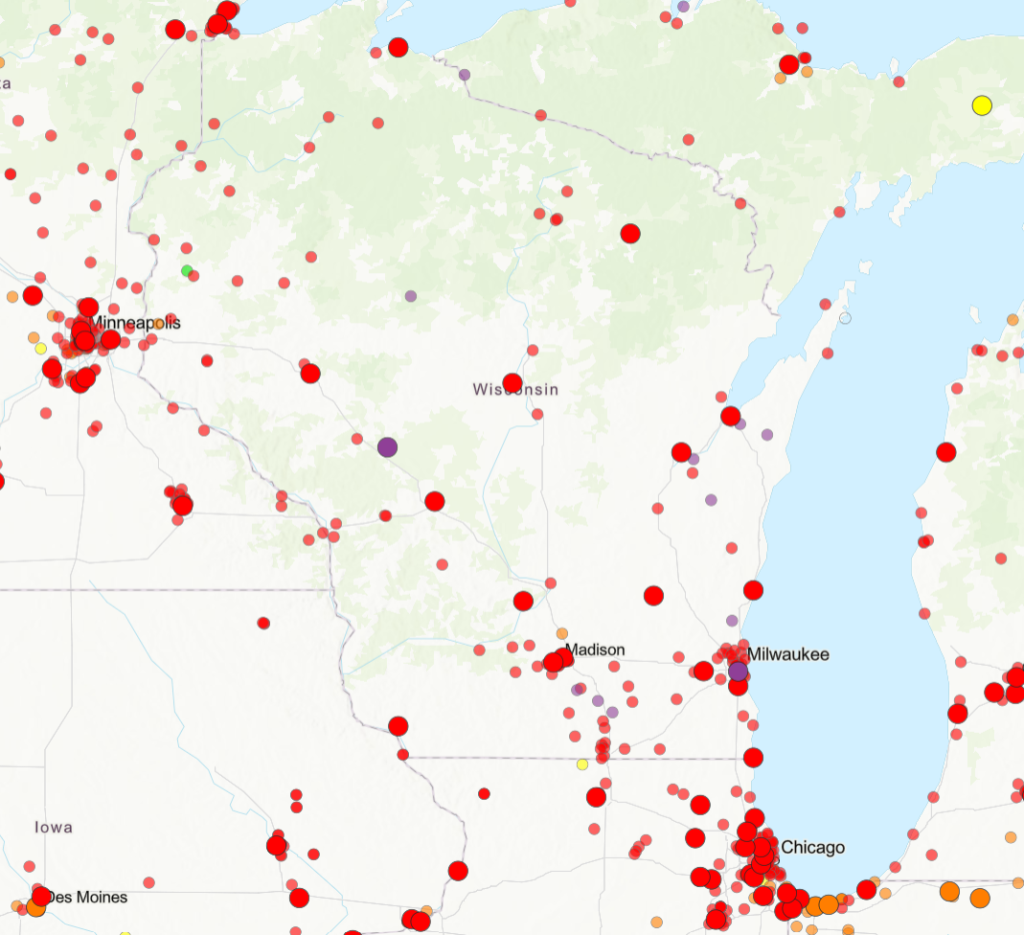
By the afternoon, Milwaukee, Madison and places west, like Black River Falls, reached very unhealthy levels as well.
#1: Combined Locks AQI 216
#2: Chilton AQI 210
#3: Milwaukee AQI 206
#4: Milton AQI 205
#5: Black River Falls AQI 204
These values marked Wisconsin as the worst air quality in the entire world Thursday.
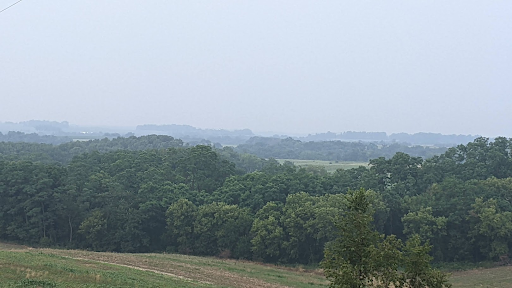
The high pressure providing dry conditions is responsible for bringing in the wildfire smoke, and the system sits over the state through Saturday.
The smoke is forecasted to begin to clear up south of the state late Thursday, but it may linger in west and north Wisconsin through Friday. Some relief to Green Bay and Wisconsin’s northeast areas is likely by midday Friday.
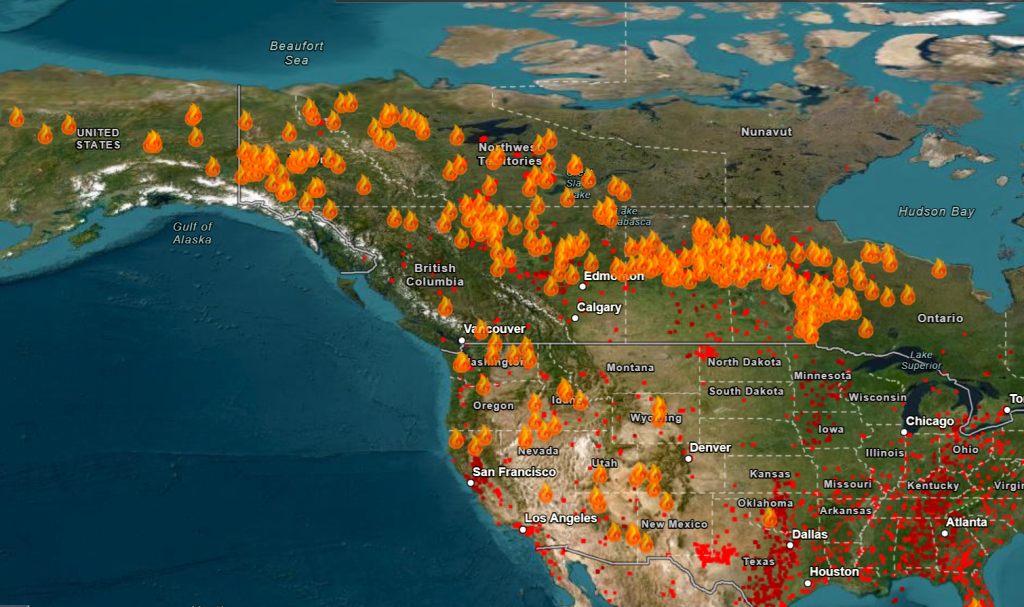
There are currently 70 active large wildfires burning over one million acres across Canada and the western U.S.
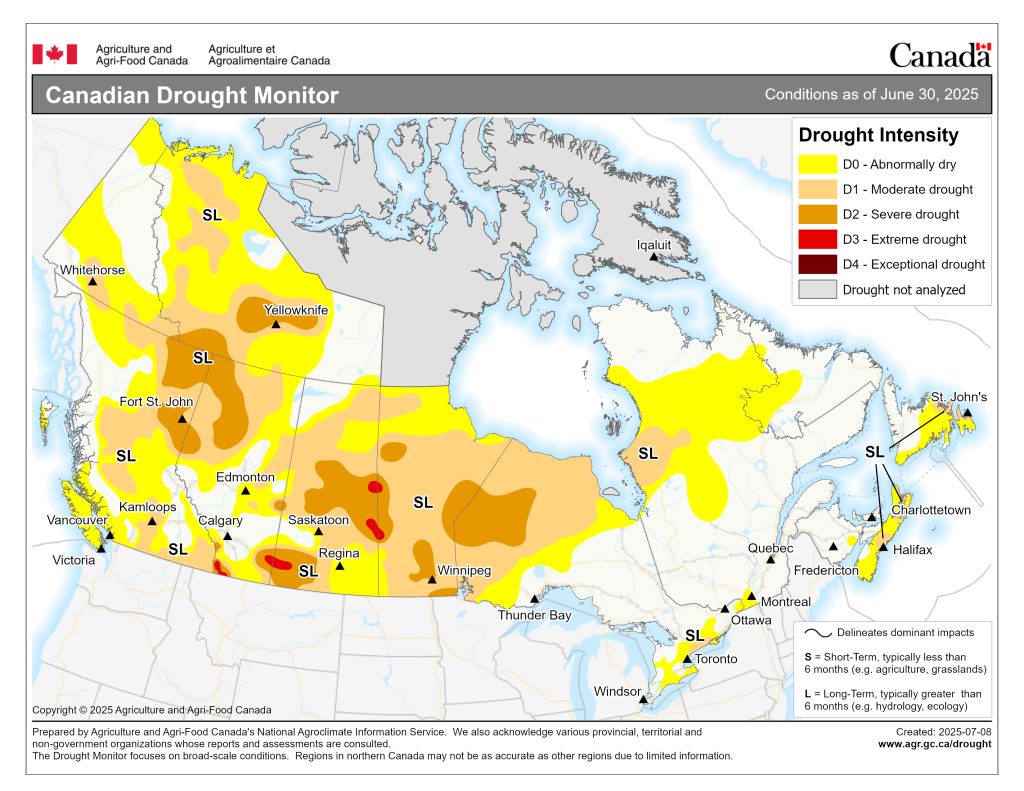
Wisconsin DNR firefighters and engines have been mobilized to aid in the battle against the flames. Saying the biggest cause of the fires is lightning strikes in remote wooded areas.
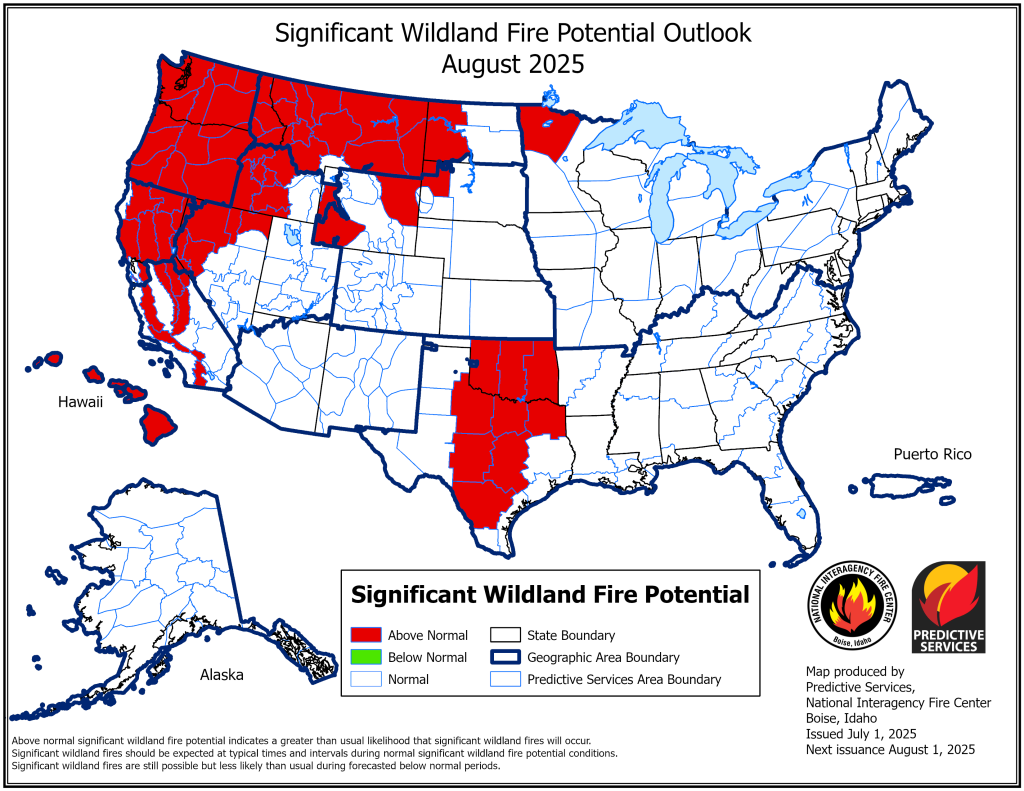
The wildfire season runs from April to October.
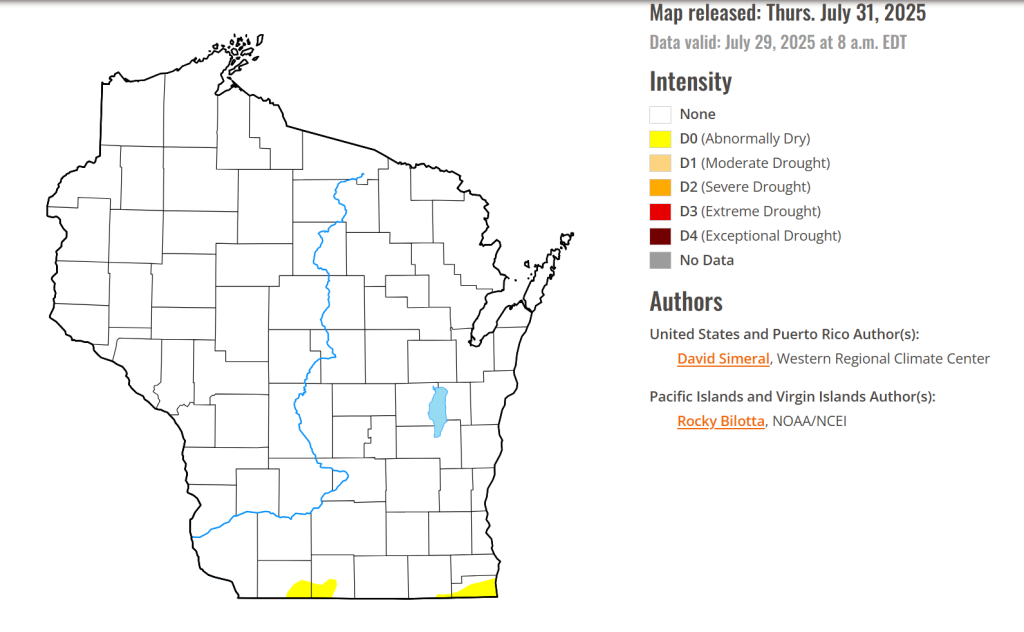
Wisconsin is currently completely out of drought conditions. There are only a few abnormally dry spots far south along the stateline.
The current advisory has been extended through noon on Friday, August 1. The DNR says conditions will be reevaluated on a day-to-day basis through the weekend, including updates to the forecast and any associated air quality advisories.

People with heart or lung disease, older adults, and children should consider making outdoor activities shorter and less intense, as well as reduce heavy exertion. Consider rescheduling or moving events indoors.
Protect Yourself From Wildfire Smoke
- Stay indoors.
- Close doors and windows.
- Avoid activities that increase indoor pollution: vacuuming, frying food, burning candles or using gas-powered appliances.
- Install a high-efficiency air filter.
- Use an air purifier.
- Use an N95 mask if outdoors for long periods.
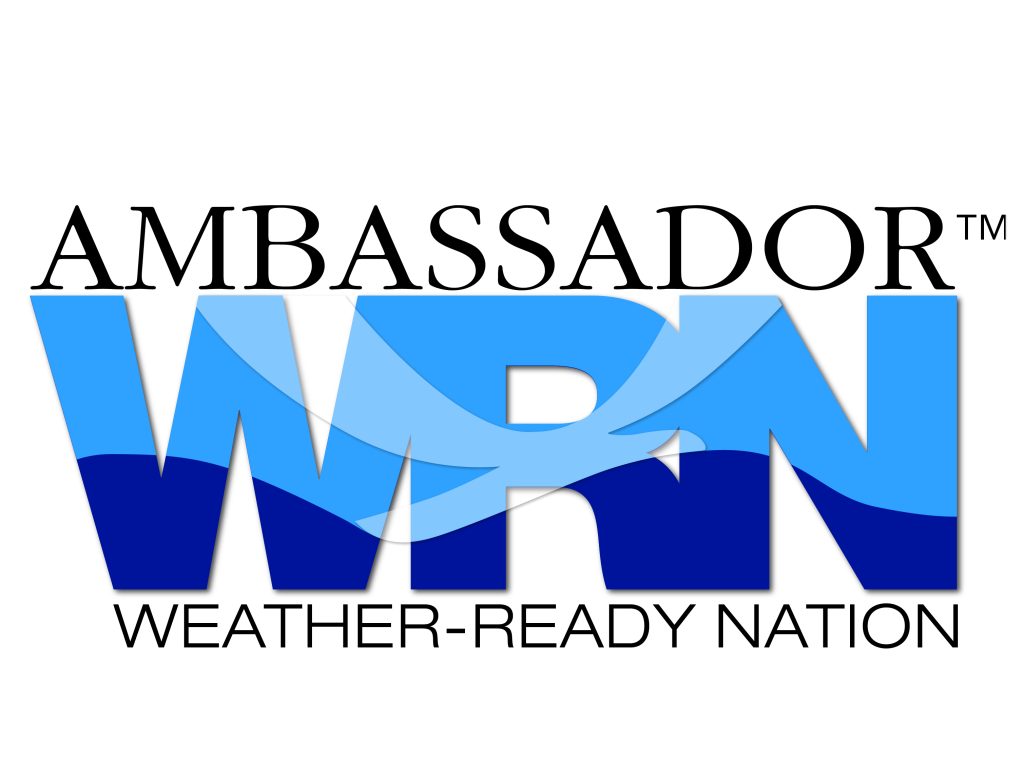

Brittney Merlot is Civic Media’s Meteorologist. Email her at brittney.merlot@civicmedia.us.
Want More Local News?
Civic Media
Civic Media Inc.
The Civic Media App
Put us in your pocket.
